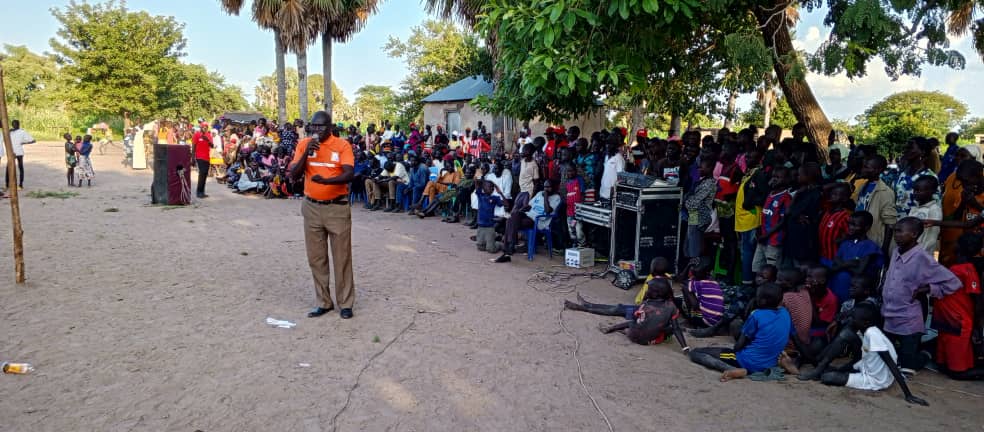By Yang Ater Yang.
At least 23 villages in three counties of Rumbek Central, Rumbek North and Rumbek East of Lakes state celebrate their achievements in hygiene practices.
The celebration in Cueicok Payam of Rumbek East County brings in the 23 villages that achieved the hygiene practice as required in Community Led Total Sanitation (CLTs).
Lake State director for Water Sanitation and Hygiene (WASH), Barnaba Makuac Magol said the CLTs program entails construction and use of pit latrines, washing rakes, drying lines and rubbish pits.
He noted that proper use of the latrines, leading to the absence of human waste littering, referred to as “Open Defecation Free (ODF) status”, is what has branded the community a title.
According to Magol, the state Ministry of Housing, Land and Public Utilities implements the program in collaboration Centre for Emergency Development Support (CEDS).
He said that UNICEF supports the CLTs project with funding from the government of the Netherlands.
Magol said the villages achieved open defecation-free status after being triggered five months ago and managed to construct pit latrines with shelters.
According to the WASH officer, out of sixty-five (65) households, at least 60 managed to construct pit latrines and the remaining 5 left are for the people who were in the cattle camps.
He said Biling-maker Dut is one of the villages that has achieved open defecation-free in Rumbek East County.
CEDS Wash engineer, David Ayuen Mawel said they will monitor the remaining villages and launch a new project at the end of this year.
He urges the community to work hard to achieve open defecation-free in all the villages so that Lakes State becomes the first among all the states in South Sudan.
Sultan Dut Mayor Dorin said that “only cows will be left to defecate in the open” but human beings must use pit latrines in their homes in all the villages.
“I will be preaching this message in all the villages in every village, and mostly in the places of social gatherings where I am invited as a chief “, he said.
He said pit latrines were important in prevention of diarrhea and other diseases from spreading in the community.



